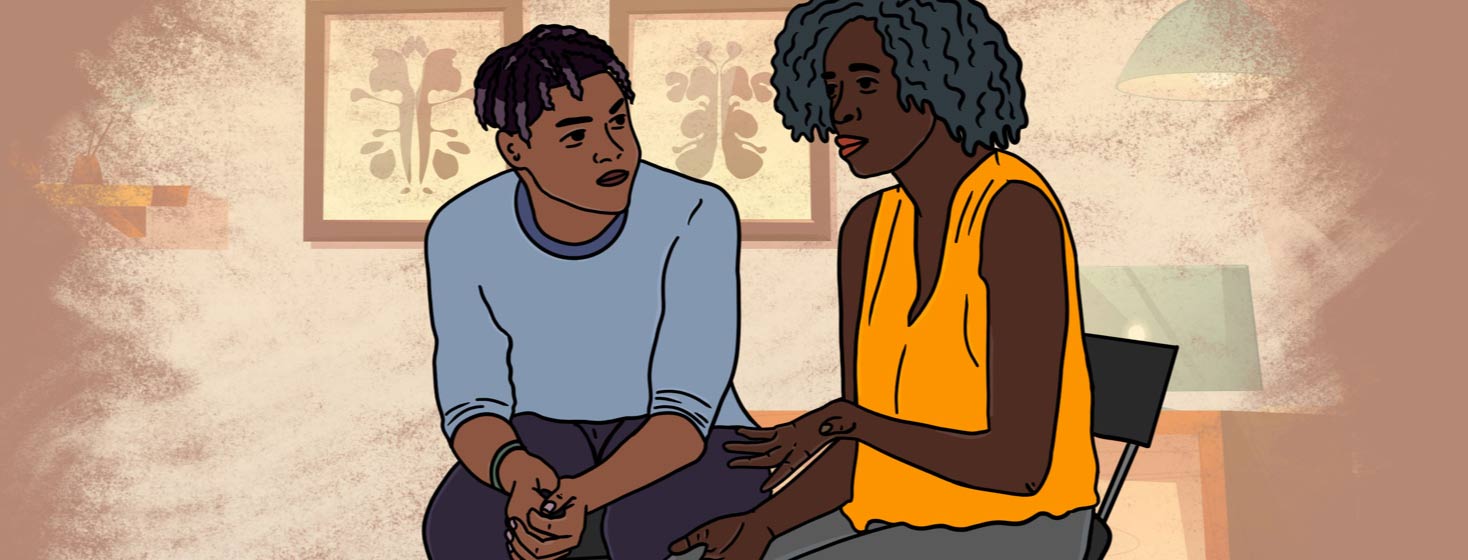Family Therapy and Bipolar Disorder
Bipolar disorder affects not only the person with the mental illness but also their family. The large mood swings that come with bipolar disorder can make it hard to predict how your loved one will act on any given day. Even the closest families may have conflicts as they try to give their loved one with bipolar disorder the support they need.1
Family therapy that is provided in a collaborative, positive environment can help you and your loved ones work together and improve outcomes as you navigate life with bipolar disorder.
Family-focused therapy
Individual therapy and psychiatric drugs can help people with bipolar disorder cope with their illness. Family-focused therapy (FFT) is designed to improve relationships among family members. FFT is a type of psychotherapy, also called talk therapy. A group taking part in family therapy can include a spouse, parents or guardians, siblings, aunts and uncles, and even close friends.2,3
The goals of FFT can include:2
- Understanding the difference between the personality of the person with bipolar disorder and their mental illness
- Accepting that your loved one needs psychiatric drugs to treat their bipolar disorder
- Accepting that the person with bipolar disorder may have future episodes of depression, mania, or hypomania
- Recognizing which stressful events may cause symptoms and learning coping strategies
- Working to reestablish healthy family relationships after a bipolar disorder episode
The role of the therapist
Family therapy is led by a licensed mental health professional. They may be a licensed marriage and family therapist who specializes in working with families. The therapist should provide a safe and supportive environment where all members of the family are treated fairly. Trust in the therapist must be in place for family therapy sessions to be successful.3
To help families through the therapy process, the therapist will:3
- Help clarify what each family member is hoping to get out of the therapy sessions
- Ask about any concerns and fears related to family therapy
- Encourage active listening rather than cross-talk or interruptions
- Help everyone involved understand how their words and body language affect others
- Offer strategies for changing patterns of behavior that cause conflict
The impact of family-focused therapy
One 2020 study looked at the impact of family therapy on individual families. The researchers studied 127 children and teens between the ages of 9 and 17 who were considered at risk for bipolar disorder. The risk was based on genetic and family history, as well as symptoms like depression or mania.4
Half of the participants had 12 sessions of family-focused therapy over 4 months. The other half had less intensive therapy that was closer to the traditional standard of 3 sessions of 1:1 therapy and 3 sessions of family therapy. These sessions also took place over a 4-month period. About 60 percent of the participants took medicine for ADHD, anxiety, mood instability, and depression.4
In the family-focused therapy sessions, children and parents were taught active listening to improve communication. Active listening requires a willingness to understand someone else's experience and point of view without judgment. Participants were also taught conflict-resolution skills and how to recognize the early warnings signs of bipolar disorder.4
Children and teens in the traditional education treatment group learned how to spot new or recurring symptoms. They were also given personalized instruction for managing their mood swings.4
The researchers found that 77 percent of children and teens in the family-focused group saw their symptoms improve during the study. The average time before symptoms of depression returned was 87 weeks.4
In the traditional therapy group, 65 percent of the children and teens saw their symptoms improve. The average time before symptoms returned was 63 weeks.4
The role of psychoeducation
Psychological education (psychoeducation) is a vital part of family therapy. It is designed to teach people with bipolar disorder and their families about the illness. Psychoeducation sessions look at the causes, progression, outlook, and treatment of the disorder, including:5
- Common symptoms
- Early warning signs of relapse
- Coping skills
- Dos and don'ts for dealing with a loved one with the disorder
- Misconceptions about the illness
Family psychoeducation is key when dealing with someone whose symptoms might lead to a lack of insight. They may be reluctant to take medicine or be heading toward a severe relapse. When families are educated about bipolar disorder, they can help their loved one and have less conflict and more stability overall.5
